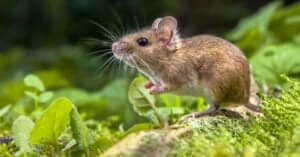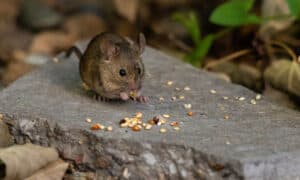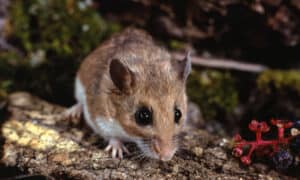Mice are small rodents that often weigh as little as 1 ounce. It’s hard to imagine them biting much of anything at such a small size. Yet, mice manage to gnaw their way into our stored goods and eat their fill. Whether you are considering getting a pet mouse or thinking about a chance encounter with a mouse in your basement, the thought has probably crossed your mind: do mice bite?
Let’s look at what’s in a mouse’s mouth and whether or not you need to worry about it.
How Big Are Mouse Teeth?
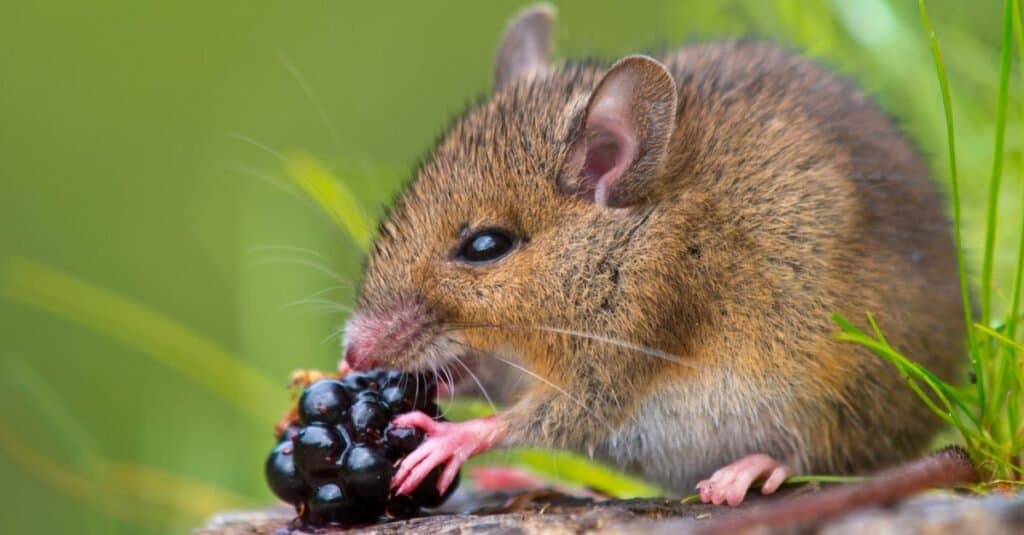
Mice don’t have large teeth, but they are strong enough to get the job done.
©Rudmer Zwerver/Shutterstock.com
Mouse teeth are rather small, measuring about 1/8 to 1/4 of an inch. Mice have 18 teeth in their mouth, and they continually grow throughout their lives. As such, mice must constantly chew and wear down their teeth to prevent them from overgrowing.
In return, mice also get to constantly gnaw without fear of their teeth breaking down. Also, their teeth are a little harder than human teeth. With their regenerative properties and the hardness of their teeth, mice can chew through various items.
In fact, one of the best ways that you can stop a mouse from chewing into a wall is to stuff holes with steel wool or to reinforce the area with metal. Mice teeth are strong even if they aren’t the largest in the world.
Do Mice Bite?
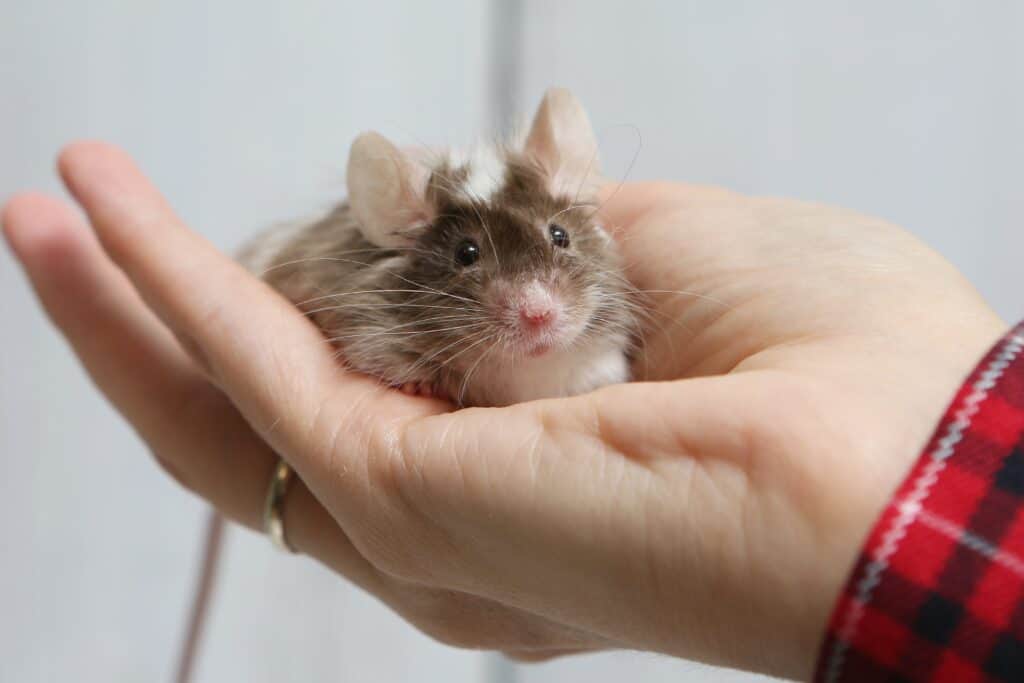
Mice use their teeth to defend themselves.
©Sergey Bezgodov/Shutterstock.com
Yes, mice bite, and they have no problem biting humans or anything else that gets close to them. Mice are small mammals, and they know that anything bigger than them presents a serious threat to their health. Mice have no other means of protecting themselves against enemies once they’re caught and cornered.
When possible, a mouse will always choose to flee rather than fight. Its diminutive stature does not lend itself to fighting back. Thus, it will use speed and agility to ward off attacks. Yet, if caught and cornered, it will use its teeth as a last resort.
While mice are not likely to charge a human, they can turn around if they are cornered. They will deliver a mildly strong, somewhat painful bite that is more than enough to make a human pull their hand away. More importantly, the bites are strong enough to break the skin.
You should never pick up a wild mouse because there is an omnipresent threat that they will bite. They don’t know the touch of a human, and they will see you as a predator. Even pet mice, unless they’re used to being handled, will nip and bite their human handlers.
Sometimes, mice that are otherwise used to human interactions may bite. They could feel unsafe for any number of reasons. The bottom line is that mice are not incredibly intelligent creatures. Your good intentions may not be considered such when you pick up these small, easily frightened animals. They can bite to obtain food or for defense.
Are Mouse Bites Dangerous?
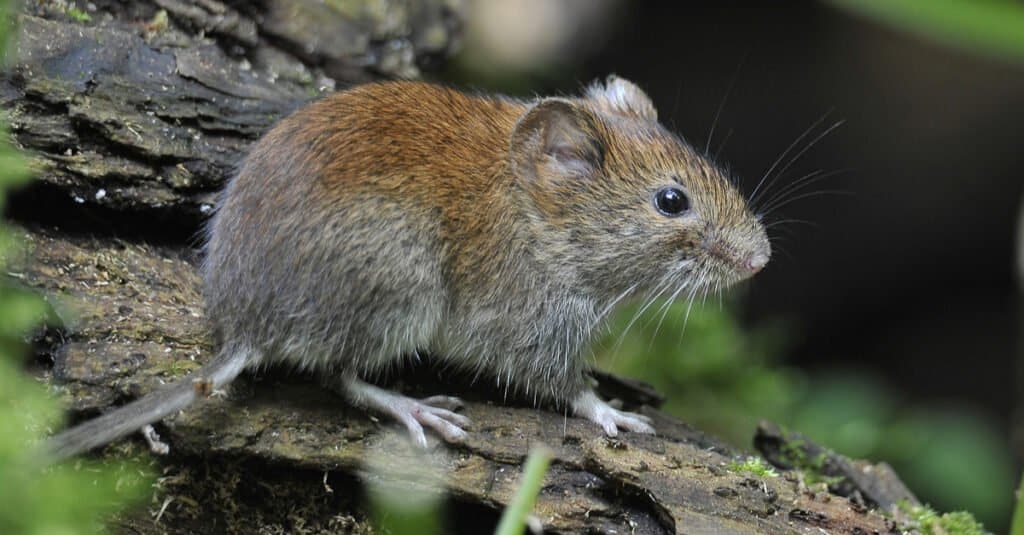
A bite from a mouse can become badly infected.
©CezaryKorkosz/Shutterstock.com
Mouse bites can be dangerous to humans. Of course. Mice aren’t going to bite you in such a manner that you will suffer a significant injury right away. They don’t have the long teeth or enough power behind a bite required to cause a fatal injury. That being said, mouse bites can still cause serious health issues for humans.
Mice can transmit a variety of diseases when they bite you. For example, mice can transmit hantavirus to victims of their bites along with other types of infections. Hantavirus is a rarity, but it’s still a possibility, and it illustrates the danger posed by these animals.
Thus, mouse bites can be mildly dangerous in most cases, but they can also be life-threatening in other cases. Your best bet is to avoid bites by leaving wild animals alone and acclimating your pet to your touch before handling them. Sometimes, your pet will not want to be held at all. It’s up to you to respect your pet mouse so that you can avoid a bite.
What Should You Do If Bitten by a Mouse?
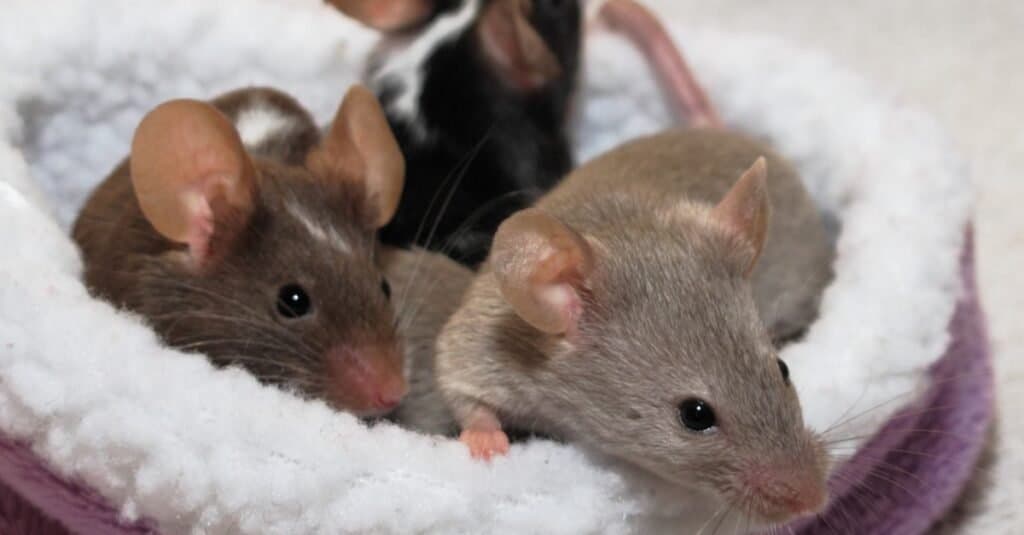
A mouse bite requires immediate attention.
©Standa Riha/Shutterstock.com
Any time that you get bitten by a mouse, you need to immediately clean it with soap and water. Using an antibiotic cream is also recommended. Most of the time, if you keep your wound clean and covered, the wound will heal without a problem. That is not the case every time, though.
Mouse bites can become infected and cause swelling, pain, and more. If the wound is not getting better after a few days, then it’s time to visit a doctor and see what’s happening.
You may have contracted a serious disease, and you may require a more powerful antibiotic or other medical intervention. Either way, proper medical treatment is key to preventing long-term negative outcomes from the bite.
What Do Mice Eat?
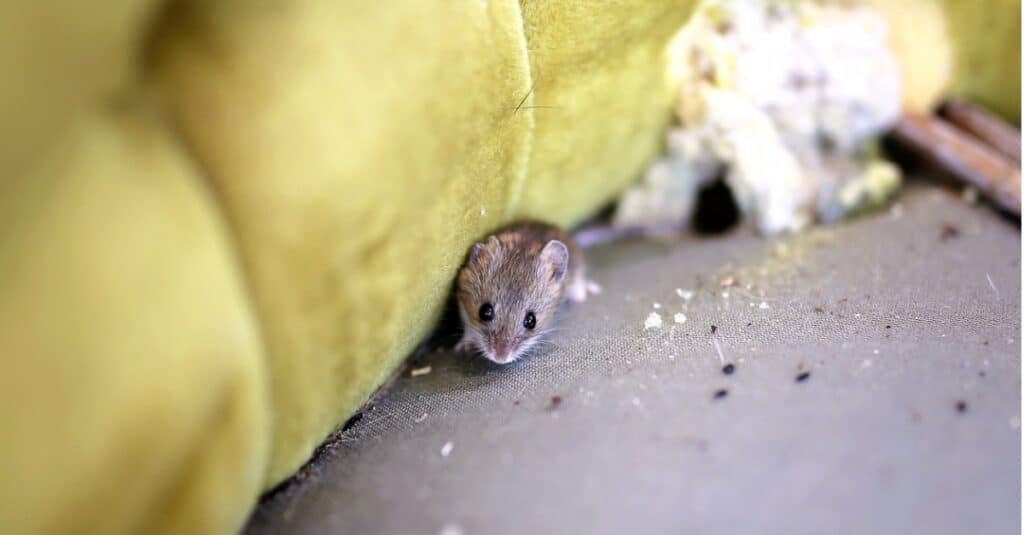
The average mouse is not very particular about its food.
©iStock.com/ChristinLola
Mice eat a variety of foods as omnivores, and their strong teeth help them in this endeavor. For the most part, you will see mice eating foods like grains and seeds. However, they will also eat different vertebrates and invertebrates, a variety of human foods, and even other mice if the situation is dire.
Their teeth allow mice to get into food containers that their claws cannot. Oftentimes, people don’t realize that they have a mouse infestation until they see evidence of them getting into their food pantries.
Mice will chew on cardboard boxes to gain access to cereal and pasta, and they’ll even sneak into any pet food that you have lying around. They are not very picky eaters. They don’t mind eating scraps and leftovers, either.
So, we have answered the question, do mice bite? The answer is a resounding: yes. Wild mice are not as likely to bite you as a pet mouse, though. Generally, the threat of negative health outcomes from a mouse bite is low.
However, you should still clean the wound, keep an eye on it, and get it checked if you experience any swelling or signs of infection. Following these guidelines can help keep you healthy.
The photo featured at the top of this post is © schankz/Shutterstock.com
Thank you for reading! Have some feedback for us? Contact the AZ Animals editorial team.



